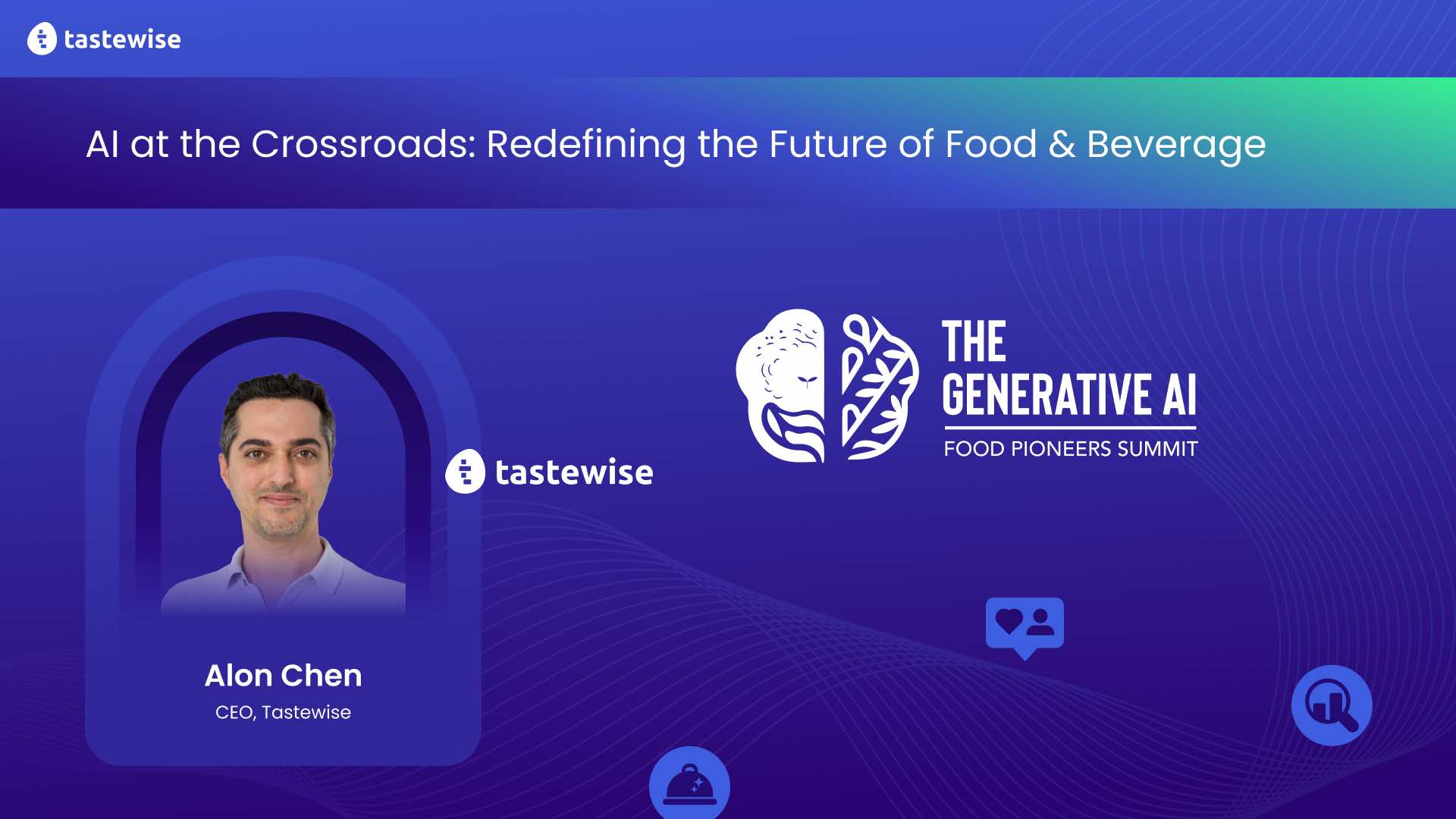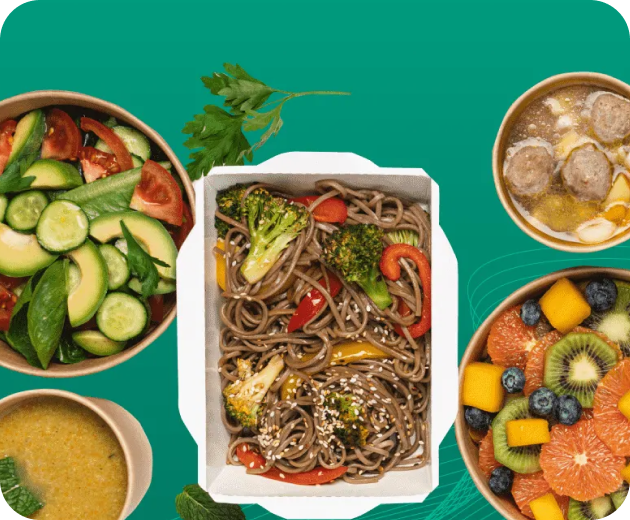AI at the Crossroads: Redefining the Future of Food and Beverage

Hi, everyone. Welcome to the 4th annual Generative AI Food Pioneers Summit. I’m Alon Chen, the CEO of Tastewise. Today, we’re joined by a global community of food and beverage innovators, marketeers, stakeholders, and visionaries. We’re standing together at a pivotal moment, a turning point that is happening as we speak.
The summit will address how we can all tap into the opportunity by adapting speed and scale, unlocking and sustaining it with the power of AI and a lot of change management. The urgency to adapt and innovate has never been greater.
Despite our efforts, 90% of product launches still fail. Our $10 trillion food industry is causing a hidden $19 trillion cost in damage to our planet and our health. It’s a disconnect between what the system is producing and what people truly want and need. Our food system is operating in silos every step of the way, from ideation, marketing, to the shelf. It is at a distance from the most important constituent: the consumer.
The way traditional models of innovation and supply-chain management were built serve a world that no longer exists. Meeting today’s consumer demand, maintaining supply, and achieving sustainability goals that are so much needed are only possible with a way of doing things differently. It’s time to adapt, to innovate, and embrace AI – or face the consequences.
Now, let’s talk about the incredible opportunities ahead of us. With AI, we’re at a golden age of data on the consumer. And with the generative AI, we have the tools not to only understand the data but to act on it at speed and scale.
AI in the food and beverage industry is projected to be at $30 billion by 2026. This is not a distant future; it’s happening right now. Look at how Kraft Heinz is innovating in food service through AI or Givaudan that leverages AI to create three times more projects and address briefs than before. Conagra is another great leader, using observed consumer behavior to drive their innovation. These companies aren’t just adapting, they are thriving by staying close to the consumer.
I love the example of MrBeast’s Feastables brand, a chocolate company that shows agility and innovation. It quickly generated $10 million in sales after launch, leveraging MrBeast’s vast online influence into data-driven marketing strategies. The success of Feastables points directly to the heart [00:03:00] of the matter.
Successful smaller brands and influencers succeed because they know their communities inside and out, very organically. They know what excites them, what disappoints them, and how to respond to change. And when this information is in the hands of a small, agile team or individual, it’s easy to pivot and innovate.
AI equips organizations of all sizes to take the same agile, people-first approach. Teams can respond to the market with the right marketing initiatives and product innovation that solves the needs of individuals and tells the right story to speak to who they are and what they truly care about.
Organizations that reinvent their systems and inspire change from the highest levels will be the ones that create the future of food. Alongside leaders from tech pioneers like AWS and Nvidia, we’ll be joined throughout the summit by innovators, marketeers, and sales executives from across the industry who will share their perspectives and their strategies on how to adopt AI.
So where does it all leave us? Where does AI fit into our organization and our day-to-day?
Human ingenuity, when combined with AI, creates something far more powerful and impactful. The marriage between tech and creativity requires responsibility, commitment, and a willingness to upskill and adapt.
There is a common fear that AI will take jobs away. But the truth is, AI won’t take your job; someone who knows how to use AI will. It’s about embracing change and it requires effective change management, a true leadership exercise to show people the way. The companies leading today aren’t just the biggest; they’re the most agile and innovative. The companies that once dominated the market are facing fresh competition in the hands of new technologies.
At Tastewise, we face our very own challenges in adapting to AI in our workflows. Initially, my teams were hesitant and we felt the repercussions, the missed opportunity and very slow growth. But we adapted by focusing on the integration of AI into our core processes and to our product would turn things around.
Today, we’re a new Tastewise. We’re more innovative, more agile, and always data driven. Our AI-driven solutions at Tastewise are designed to meet the urgent needs of the food and beverage industry. Our clients quickly validate innovative new product concepts that earn consumer satisfaction and loyalty. Then, they create digital marketing campaigns with our tools that speak to the heart of what people want.
Food service teams use Tastewise to execute new sales strategies, creating co-creative partnerships that are good for everyone. We were the first to create TasteGPT, our consumer generative AI tool just for the food and beverage industry that radically speeds up the time and access to answers, democratizing data. And we have equipped marketing teams with our content agency to save hours on execution and budgets.
At Tastewise, the food professionals and the ad consumers are at the heart of everything we do. So the path forward is clear. To be successful, brands must become agile. They must go through change management and adapt cutting-edge technologies to reach the speed and scale of the consumer. We have the tools, the knowledge, and the creativity to make a significant impact. So let’s harness the power of generative AI and lead the way in transforming [00:07:00] the industry into a more efficient and innovative future. Welcome to the Generative AI Food Pioneer Summit.




